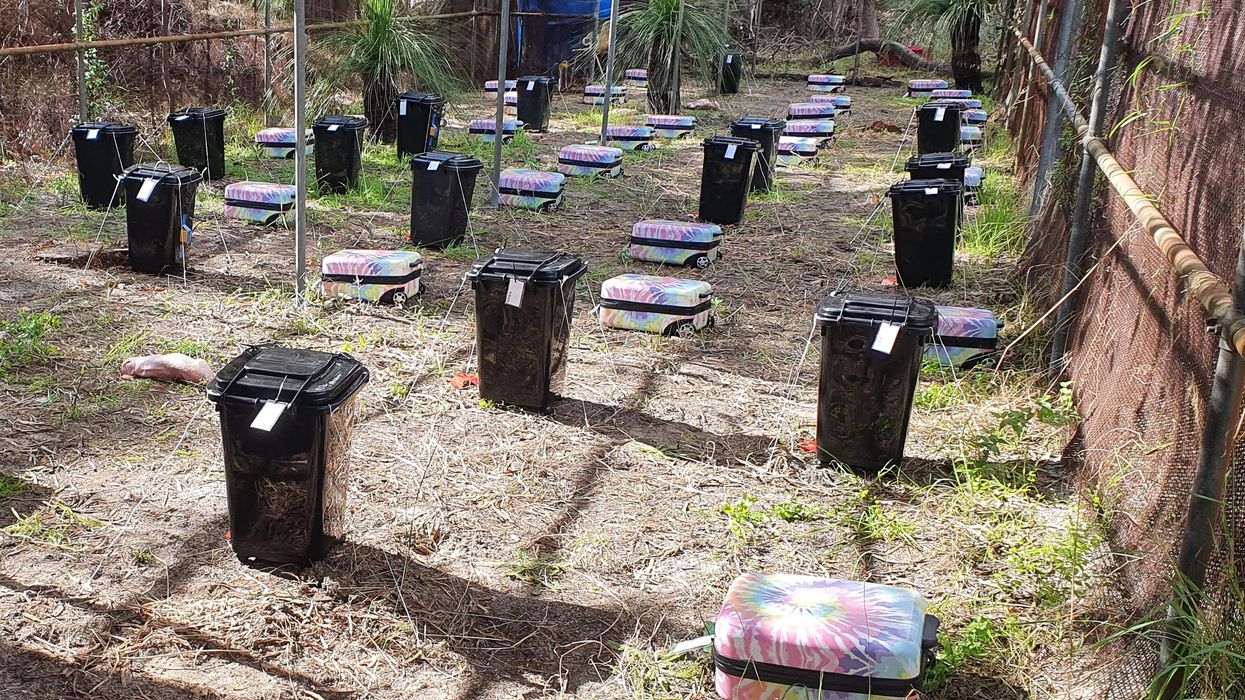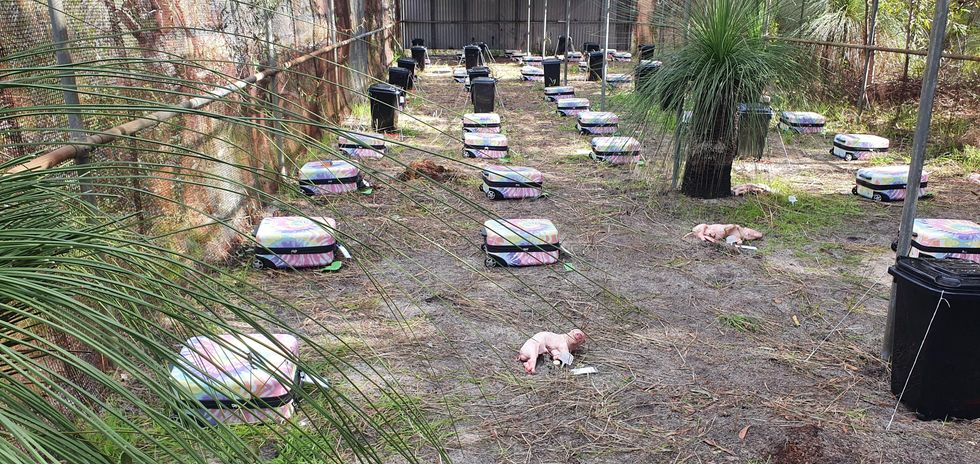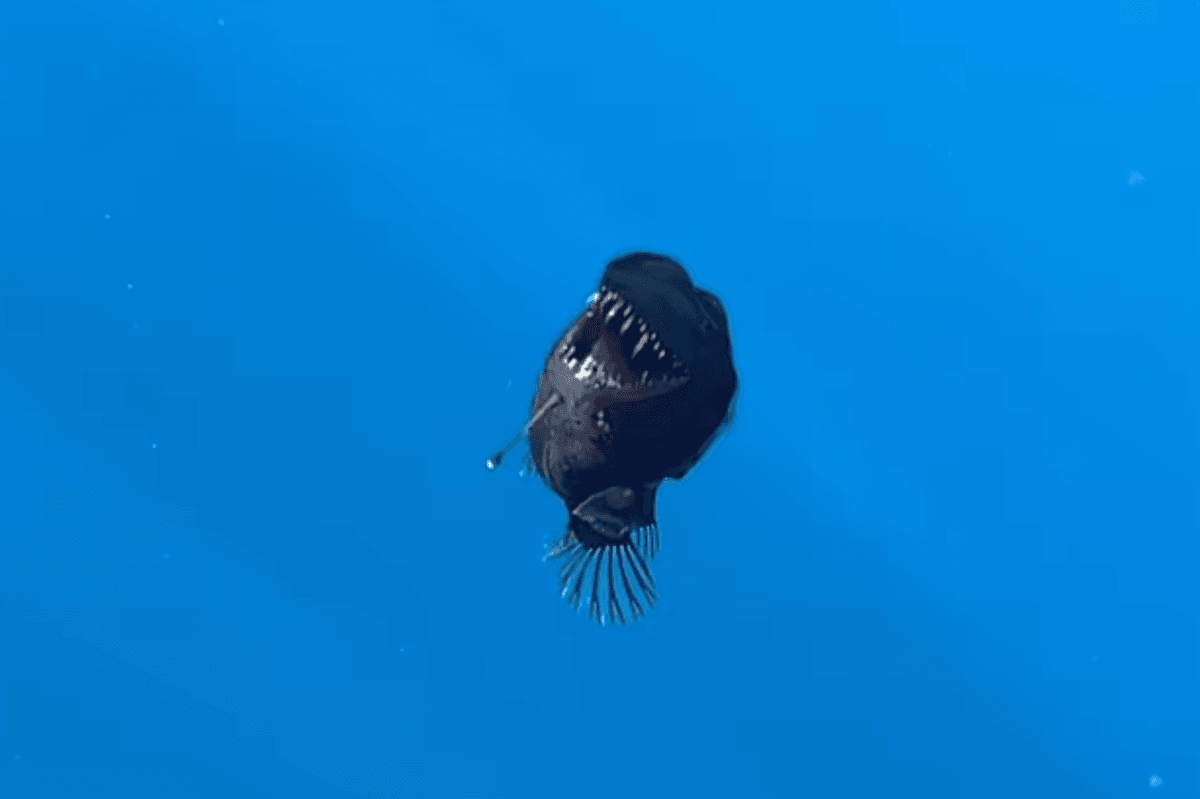Science & Tech
Sinead Butler
Sep 16, 2022

The colourful rainbow suitcases and wheelie bins are filled with stillborn piglets to see how the enclosed environment affects the decomposition process
SWNS
Suitcases have been filled with animal remains in bushland in Western Australia as part of the world's largest study of its kind on decomposition.
Around 70 stillborn piglets have been placed inside the cases and wheelie bins last month to study the decomposition process and it is hoped this research will aid crime scene investigators when working on murder cases when reconstructing events.
The temperature and humidity inside and outside the case are measured by researchers to see how this impacts the remains along with any chemical changes in the bones as well as any microbiological differences.
Sign up to our free Indy100 weekly newsletter
Some piglets are left exposed to the elements to be used as controls in this study in order to show the difference between the concealed and exposed piglets.
The remains have been placed in these confined spaces for the study because every year deceased bodies and/or body parts are discovered concealed in what is referred to as "limited access environments" according to Paola Magni, Senior Lecturer in Forensic Science, Murdoch University.
Other examples of these tight, enclosed environments include bags, wheelie bins, trunks of cars, freezers, wardrobes and cupboards.
Dr Magni explained: "This happens because the perpetrators try to avoid an easy discovery by the authorities and/or because they need something in which they can temporarily store and move the body from place to place: from the primary crime scene where the death event/murder happens, to the secondary crime scene, where the body is left or discovered.
"Last year the remains of a man were found in a wheelie bin dumped in a dam near Perth, and a few weeks ago the remains of two kids have been found in two suitcases in New Zealand, confirming that this type of research is much needed," she added.

The "limited access environment" does affect the decomposition process due to the physical barrier that helps to slow down the access for carrion insects which would colonise the body.
Consequently, this affects the forensic pathologist and forensic entomologist's ability to estimate a time or death, which is vital for a correct timeline of events that can prove or disprove a suspect's alibi.
"Time is crucial in the reconstruction of the events, to pinpoint people, places and motives," Dr. Magni added.
"A forensic pathologist has a short window of about three days since the death to estimate the time since death, while insects can be present and provide information for days, months and years.
The study will help with "the understanding of the succession of the insects in limited access environment provides new information to add to the toolbox of the forensic entomologist."
Just three research studies in the world have been conducted regarding bodies in suitcases as Dr Magni notes the data that's available currently "are not sufficient to support criminal investigation regarding bodies found in suitcases, and clearly don’t cover issues regarding bodies in other environments, e.g. wheelie bins."
Additional reporting by SWNS.
Have your say in our news democracy. Click the upvote icon at the top of the page to help raise this article through the indy100 rankings.
Top 100
The Conversation (0)













